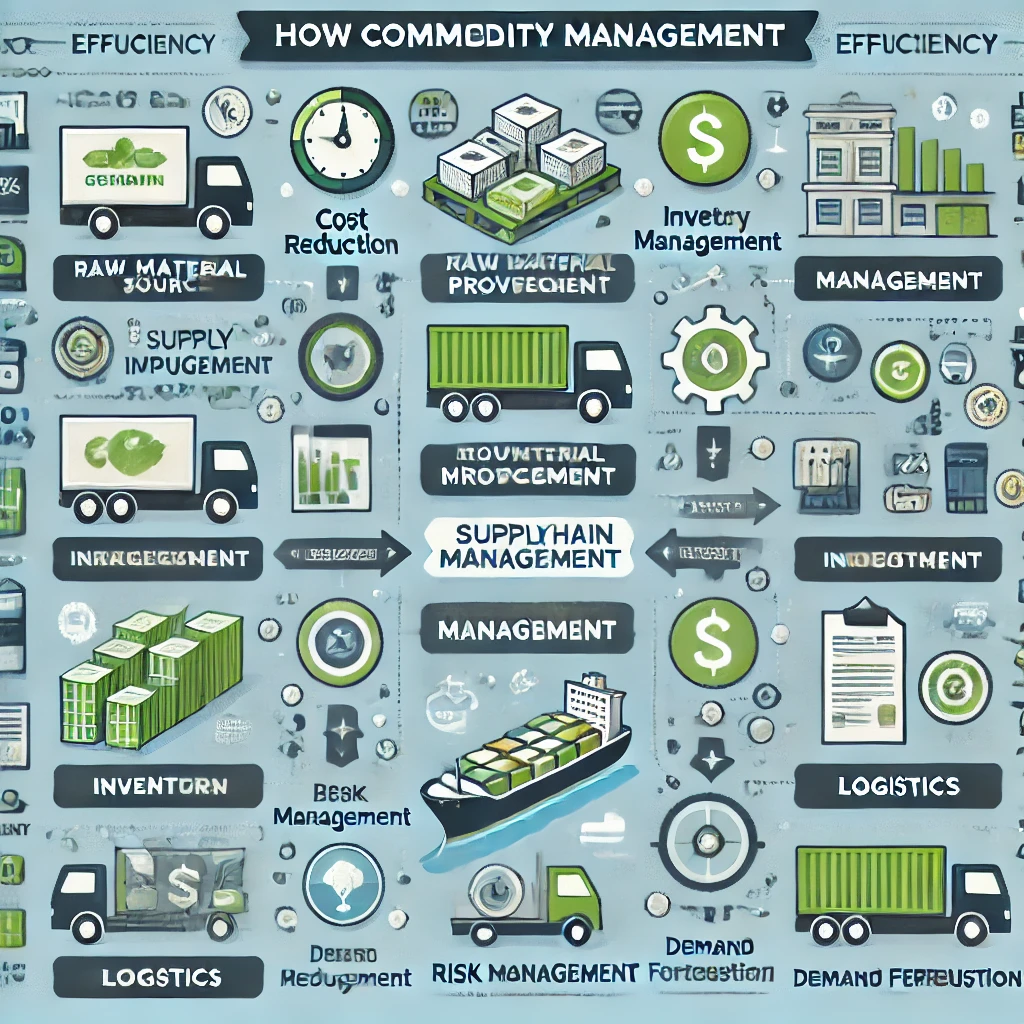Subtotal د.إ0.00
In today’s fast-paced global market, commodity management plays a crucial role in maintaining a smooth and efficient supply chain. Businesses that effectively manage their commodities can reduce costs, mitigate risks, and ensure a steady flow of goods, ultimately improving overall supply chain performance.
Understanding Commodity Management
Commodity management refers to the strategic approach businesses take to procure, monitor, and optimize the use of raw materials and essential resources. It involves tracking market trends, supplier relationships, inventory levels, and pricing fluctuations to make informed purchasing and logistics decisions. Efficient commodity management enables companies to anticipate supply and demand fluctuations, helping them stay competitive in their industry.
Key Impacts of Commodity Management on Supply Chain Efficiency
1. Cost Optimization
Effective commodity management helps companies minimize procurement costs by leveraging bulk purchasing, negotiating better supplier contracts, and reducing waste. By analyzing market trends and forecasting price changes, businesses can buy raw materials at the right time, reducing overall production costs.
2. Risk Mitigation
Global supply chains are vulnerable to disruptions such as price volatility, geopolitical issues, and natural disasters. Commodity management allows businesses to develop contingency plans, diversify suppliers, and use hedging strategies to protect against sudden price hikes or shortages. This reduces supply chain disruptions and ensures continuity.
3. Improved Supplier Relationships
Strong supplier relationships are vital for a stable supply chain. Commodity management involves maintaining open communication with suppliers, setting clear expectations, and collaborating on long-term strategies. This fosters trust, enhances supply chain resilience, and ensures a reliable supply of materials.
4. Enhanced Inventory Control
Holding excess inventory ties up capital, while insufficient inventory can lead to production delays. Commodity management ensures optimal inventory levels through demand forecasting, real-time tracking, and just-in-time (JIT) procurement. This improves cash flow and reduces storage costs.
5. Sustainability and Compliance
With increasing regulatory requirements and consumer demand for sustainable sourcing, commodity management helps businesses ensure compliance with environmental and ethical standards. By selecting responsible suppliers and monitoring sustainability metrics, companies can align their supply chain with global sustainability goals.
The Future of Commodity Management in Supply Chains
As technology advances, businesses are adopting AI-driven analytics, blockchain, and IoT (Internet of Things) to enhance commodity management. These tools provide real-time data, predictive analytics, and greater transparency across the supply chain, enabling smarter decision-making and increased efficiency.
Conclusion
Commodity management is a critical component of supply chain efficiency, impacting costs, risk management, supplier relationships, inventory control, and sustainability. Companies that invest in effective commodity management strategies are better equipped to navigate market fluctuations, reduce operational risks, and maintain a competitive edge. By integrating technology and strategic planning, businesses can optimize their supply chains and achieve long-term success.






